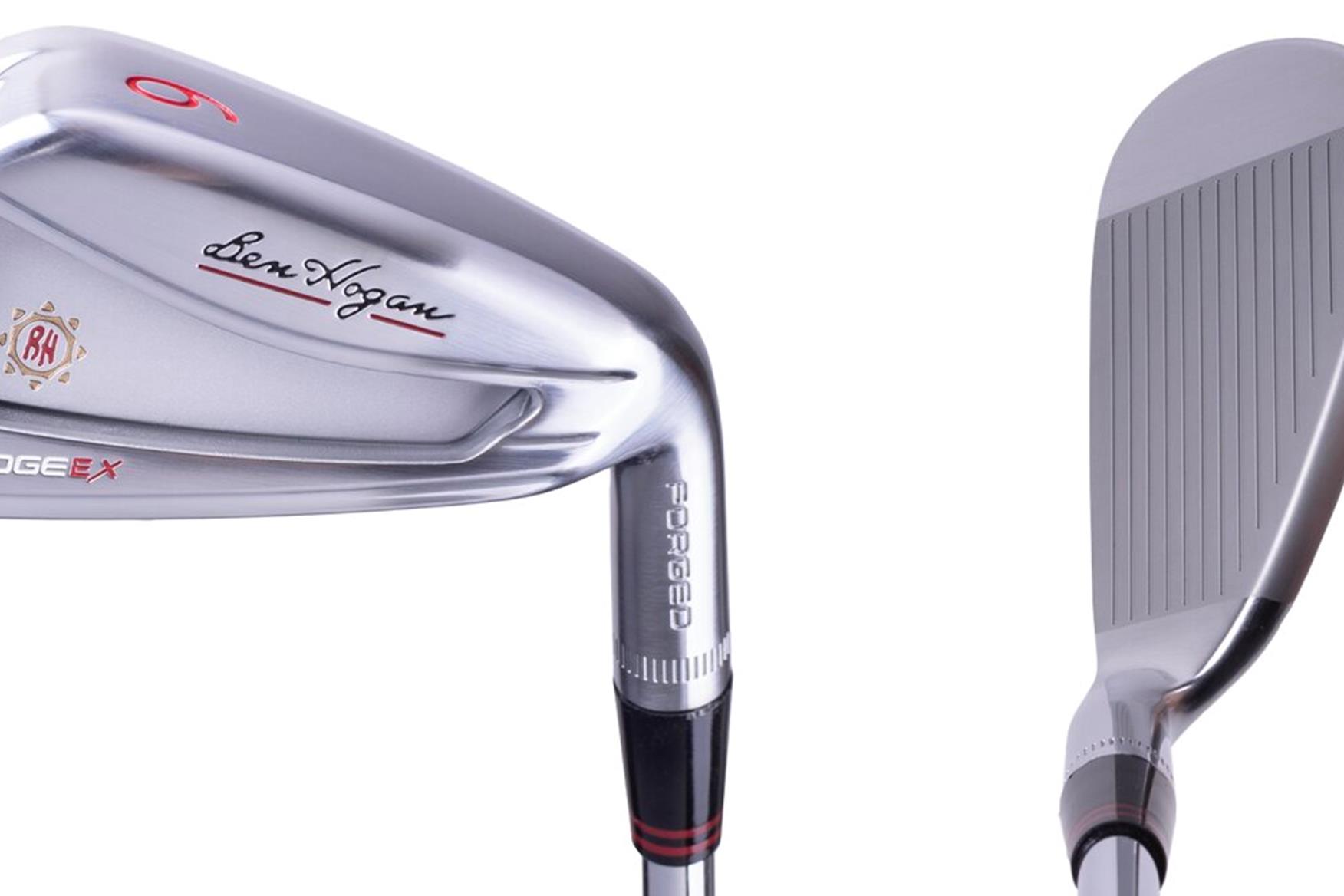

Now Hogan clubs are once again being made in Fort Worth, at the company's facility located in the former Star-Telegram printing and distribution facility at I-35W and I-20.
NEW BEN HOGAN IRONS SERIES
Hogans, developed by the legendary champion golfer, were considered among the best golf clubs on the market in the 1970s and 1980s before a series of ownership changes led to the company's demise.Īfter acquiring the Hogan brand, Koehler said he knew he needed to be in Fort Worth, where he was able to rehire some former Hogan employees. Koehler, an industry veteran from Victoria, reconstituted the Ben Hogan golf club business in 2014 after gaining rights to the Hogan name from Perry Ellis International, which had acquired the brand in 2012 from Callaway Golf. "With the PTx irons, our goal was to design the best performing clubs we could for the mid-handicap player without the constraints of cost," said Terry Koehler, the company's president and chief executive officer, in a press release. Like many things at the Hogan company, the name of the new irons is borrowed from the old company, taking its initials from Power Thrust, Ben Hogan's second set of irons. The hybrids, designed to replace long irons, come with their own innovation: interchangeable weights around the perimeter of the club that allow players to customize ball flights. Hogan says its new club design utilizes a novel "co-forging" process to provide better performance and feel than traditional cavity-back irons. Positioned at the high end of the market, the PTx irons are priced starting at $169 apiece. And like the first Hogan irons, the PTx set is uniquely numbered by loft, starting at 32 degrees rather than the traditional 3-9 irons. The new "game improvement" irons are designed to be slightly more forgiving than the Fort Worth 15 model released a year ago. This week, the Fort Worth-based company is rolling out a second set of irons, called PTx, as well as a line of VKTR hybrids designed to appeal to a wider spectrum of golfers. is introducing more products at the industry's annual PGA Merchandise Show. “There’s a lot of pressure to do this right,” he said.Click here to return to complete coverage of the 2016 PGA Merchandise ShowĪ year after bringing the Hogan brand name back to golf clubs, the Ben Hogan Golf Equipment Co. Koehler said he remembered Hogan insisting that clubs bearing his name should look like a piece of expensive jewelry.


“They’re only going to have one chance to do it right.”

“The golf consumer has so many choices today, and nobody makes bad equipment,” he said. Yet he said reviving the brand could be an uphill battle. John Lyberger Jr., the director of golf at Congressional Country Club in Bethesda, Md., said he grew up playing Hogan clubs and admired their craftsmanship when he repaired clubs. “I hope people are patient as the first year rolls along.” “I think their biggest challenge is the potential for over-demand,” Wright said. The clubs, which were unveiled Tuesday at the merchandise show in Orlando, will sell for $149 for a steel shaft, or $164 for a graphite shaft. Wright and some members were among the few to test clubs as they were being developed. “Way too many people have asked for the first set.” “I’ve got a list of members waiting to get their hands on the new clubs,” Wright said. Hogan would like it, don’t ask me to approve it.” Koehler said he was committed to making clubs as Hogan did, telling his employees, “If you don’t think Mr. The production site is less than 10 miles from the original Hogan plant on West Pafford Street in Fort Worth. He also announced the company would return to its roots, and name the first line of clubs the Ft. In addition to financing for the venture, Koehler lined up former employees with more than 130 years of Hogan experience. In 2012, Koehler was making specialty wedges for SCOR Golf in Victoria, Tex., when he approached Perry Ellis’s president, Oscar Feldenkreis, about buying the Hogan brand and resurrecting its club line. In the 1990s, Koehler was the marketing director for Hogan clubs. Terry Koehler, 62, grew up idolizing Hogan, a fellow Texan who had played golf with Koehler’s father before World War II. In 2012, Callaway sold the brand name to Perry Ellis International, which continued to sell Hogan golf balls, apparel and accessories. Five years later, it ceased production of golf clubs. Callaway purchased the company out of bankruptcy from Top-Flite Golf for $125 million in 2003. It went through a succession of owners after Hogan sold it to AMF in 1960. After Hogan’s death in 1997, the company strayed from its roots as an elite club maker.


 0 kommentar(er)
0 kommentar(er)
